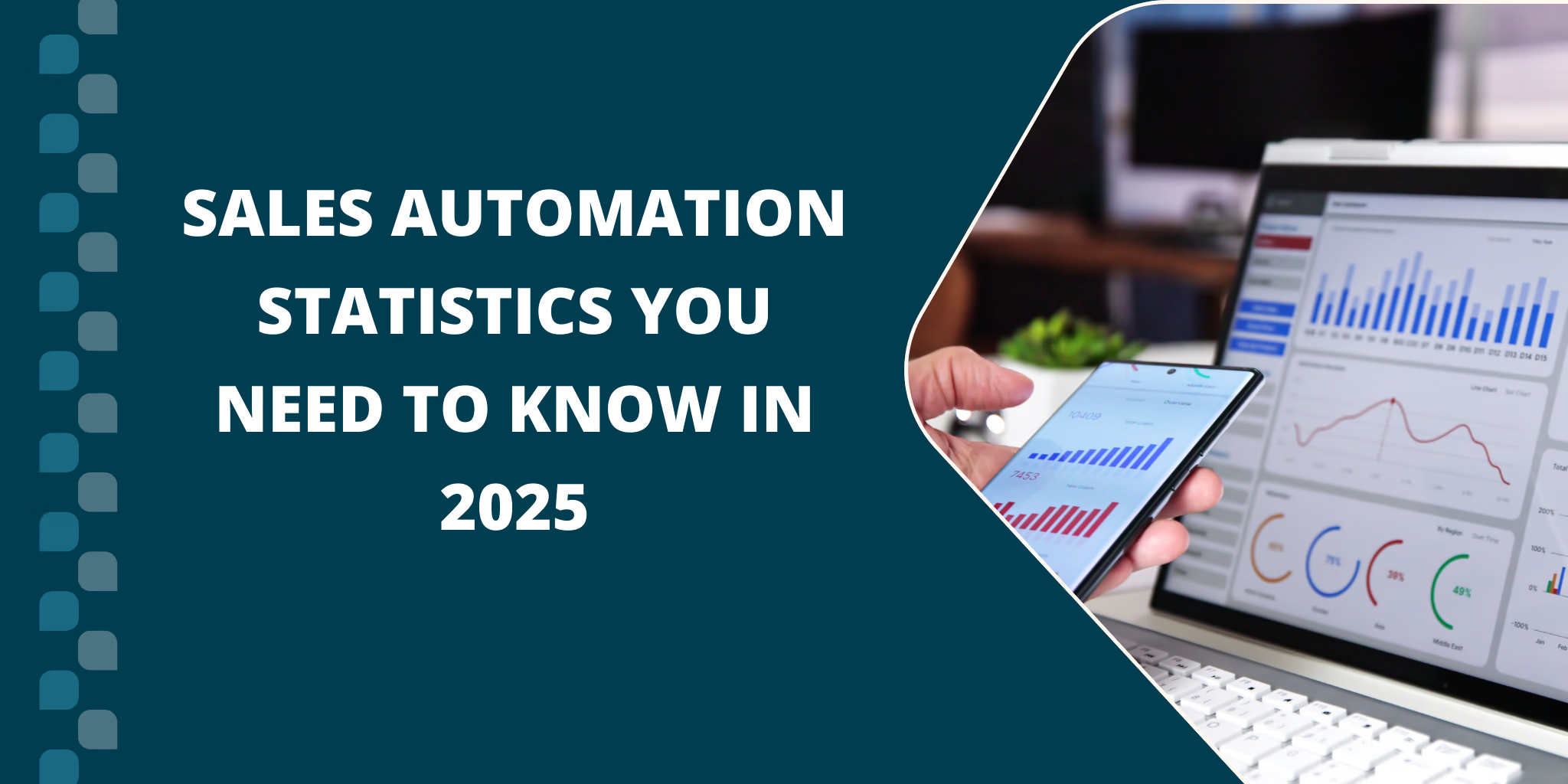As we enter 2025, sales automation is reshaping how businesses connect with prospects, manage pipelines, and close deals. Gone are the days of manual data entry and missed follow-ups. Instead, AI-driven insights, streamlined CRMs, and omnichannel strategies are helping teams work smarter and faster. Whether you’re exploring market growth or looking to optimize your team’s efficiency, these statistics—and the stories they tell—point toward a more innovative and responsive future in sales.
Market Growth & Adoption
The global market for sales automation is scaling at an unprecedented rate. As digital channels dominate B2B engagements and AI-powered CRM solutions become standard, companies that invest now are primed to outpace their competitors.
With digital channels projected to account for 80% of all B2B sales engagements by 2025 and 74% of sales professionals expecting AI to redefine their roles, the path forward is clear: automation is the new baseline, not just an added advantage.
Industrial Automation Market Growth
2019: $7.8B
2025: $16B
Productivity & Efficiency
Efficiency isn’t just about speeding up tasks—it’s about empowering your reps to spend more time in meaningful conversations. Automation tools tackle repetitive processes, minimize errors, and free sales professionals to focus on building trust and closing deals.
This improved productivity translates into tangible bottom-line benefits. Companies leveraging AI report a 10-20% increase in ROI, proving that streamlined processes directly impact revenue and growth.
90%
of knowledge workers say automation improved their jobs
5 hrs
saved per week by automating day-to-day tasks
20%
reduction in human errors with sales automation
Sales Activities & Time Management
Time is a precious commodity in sales. Without automation, representatives often spend too many hours on admin tasks rather than selling. Automation rebalances the equation, shifting focus back to revenue-generating activities.
53%
of sales pros spend most of their day on selling activities
On average, reps spend 19% of their time updating CRMs, and nearly a third of the workday can vanish into administrative duties. Automated lead enrichment, call logging, and data syncing ensure that every hour spent is an hour moving deals forward rather than wrestling with spreadsheets.
Customer Expectations & Response Times
Today’s buyers demand near-instant responses and seamless experiences across multiple channels. Automation tools help you meet these expectations, ensuring that every inquiry is promptly addressed and every channel remains connected.
Whether it’s automated chatbots, instantaneous lead routing, or integrated CRMs that track engagement history, automation ensures prospects never fall through the cracks and customers feel valued at every touchpoint.
80%
of customers expect a response within 10 minutes
80%
of companies invest in omnichannel experiences
10x
more likely to convert if leads are contacted within 5 minutes
Sales Follow-Up Statistics
Following up is an art—one that automation can perfect. Most deals require multiple touchpoints, yet too many reps fail to persist beyond the initial outreach. Automated follow-up sequences guarantee no lead goes unnoticed.
This persistence shows prospects they’re more than just a number in your pipeline and dramatically improves your odds of closing the deal.
Step 1: Initial contact made, but 38% of reps never follow up again.
Step 2: B2B deals often need 2-6 follow-ups before conversion.
Step 3: Automated reminders, personalized emails, and voicemail drops keep leads warm and engaged.
Cold Calling & Outbound Engagement
Cold calling still plays a role, but automation transforms it from a numbers game into a smarter, more strategic process. Tools like local presence dialing, automated power dialing, and instant voicemail drops help reps engage more prospects in less time.
This strategic approach turns a traditionally daunting activity into a structured, data-backed process that elevates morale and results.
✓
PowerCall: Accelerate outreach with automated dialing
✓
Local Presence: Increase answer rates with local numbers
✓
Voicemail Drop: Save time and maintain personalization
Conversation Intelligence & AI
AI-driven conversation analytics offer real-time insights into buyer sentiment, competitor mentions, and deal blockers. This level of intelligence informs more nuanced conversations, better training, and continuous improvement.
From identifying common objections to highlighting best practices, these insights turn every call into an opportunity to refine strategy and boost success rates.
88%
of sales teams use conversation intelligence tools
53%
report higher customer satisfaction post-adoption
95%
of customer-retailer interactions AI-assisted by 2025
Future Trends in Sales Automation
The future belongs to those who embrace hyperautomation, predictive analytics, and seamless integration across all tools. As technology advances, so does the potential to deliver world-class buyer experiences at scale.
As marketing automation revenue surges toward $21.7 billion by 2032, integrating AI at every stage of the pipeline will become standard. The question isn’t whether to automate but how quickly you can adapt to stay competitive.
Global Marketing Automation Revenue
2024: $8.3B
2032: $21.7B



